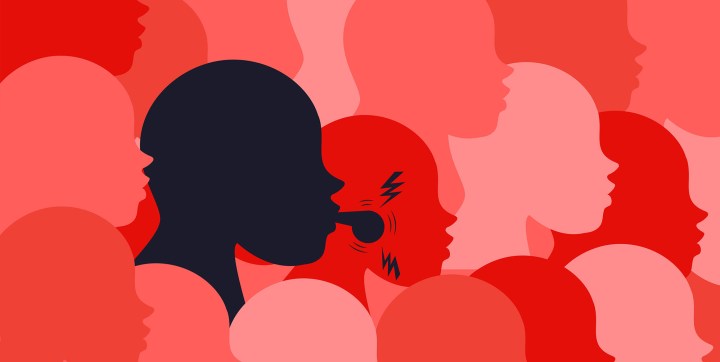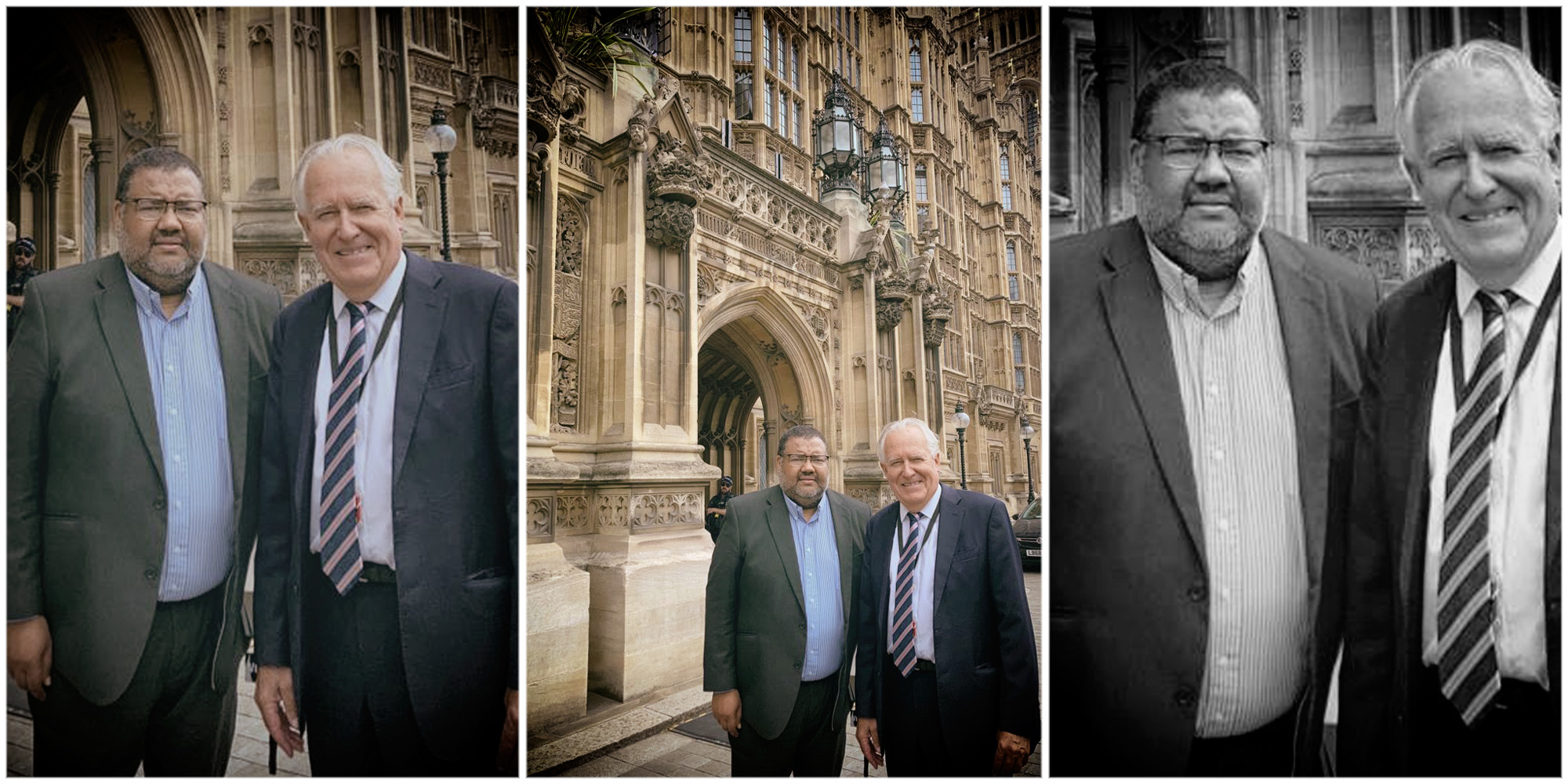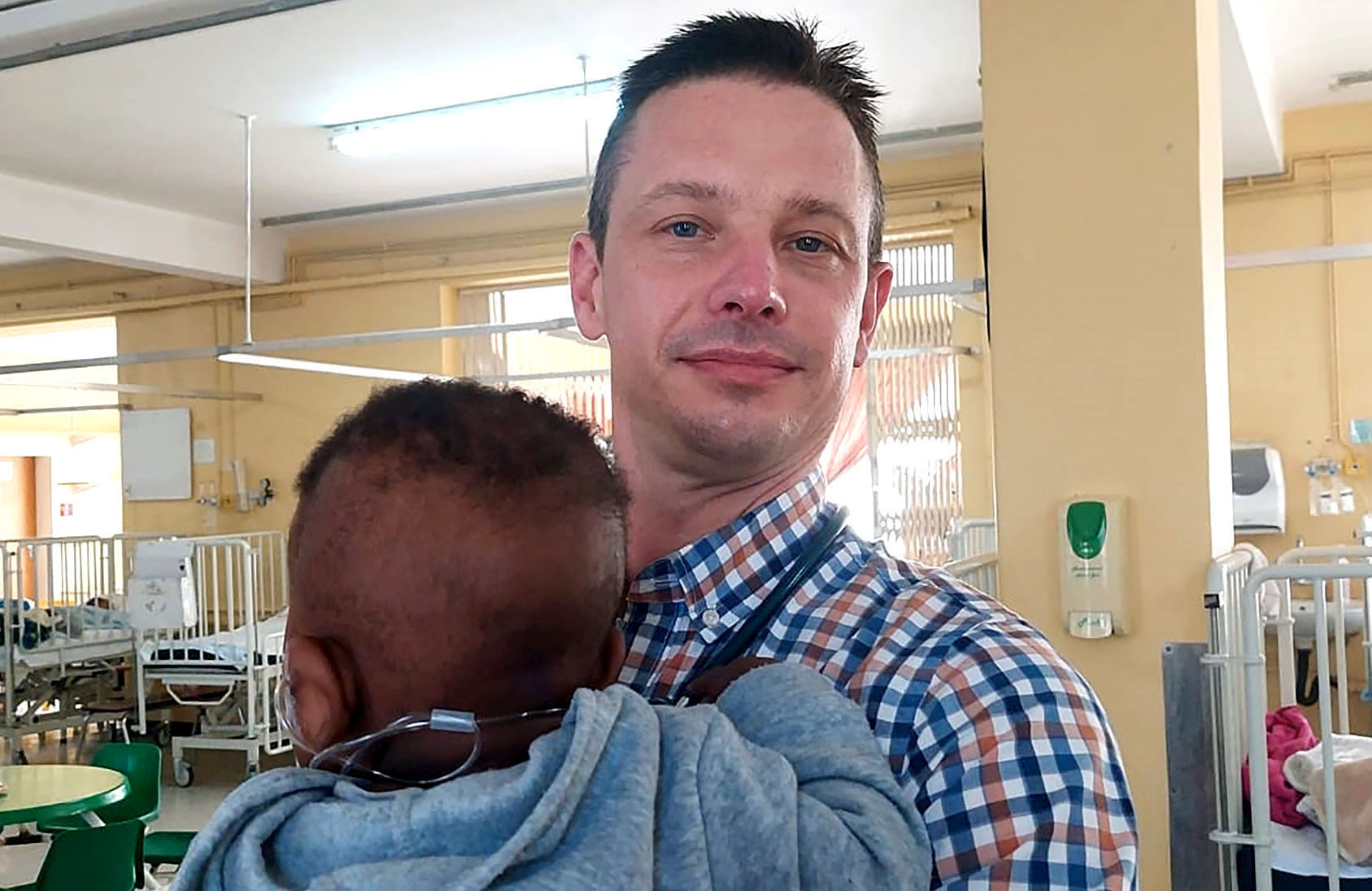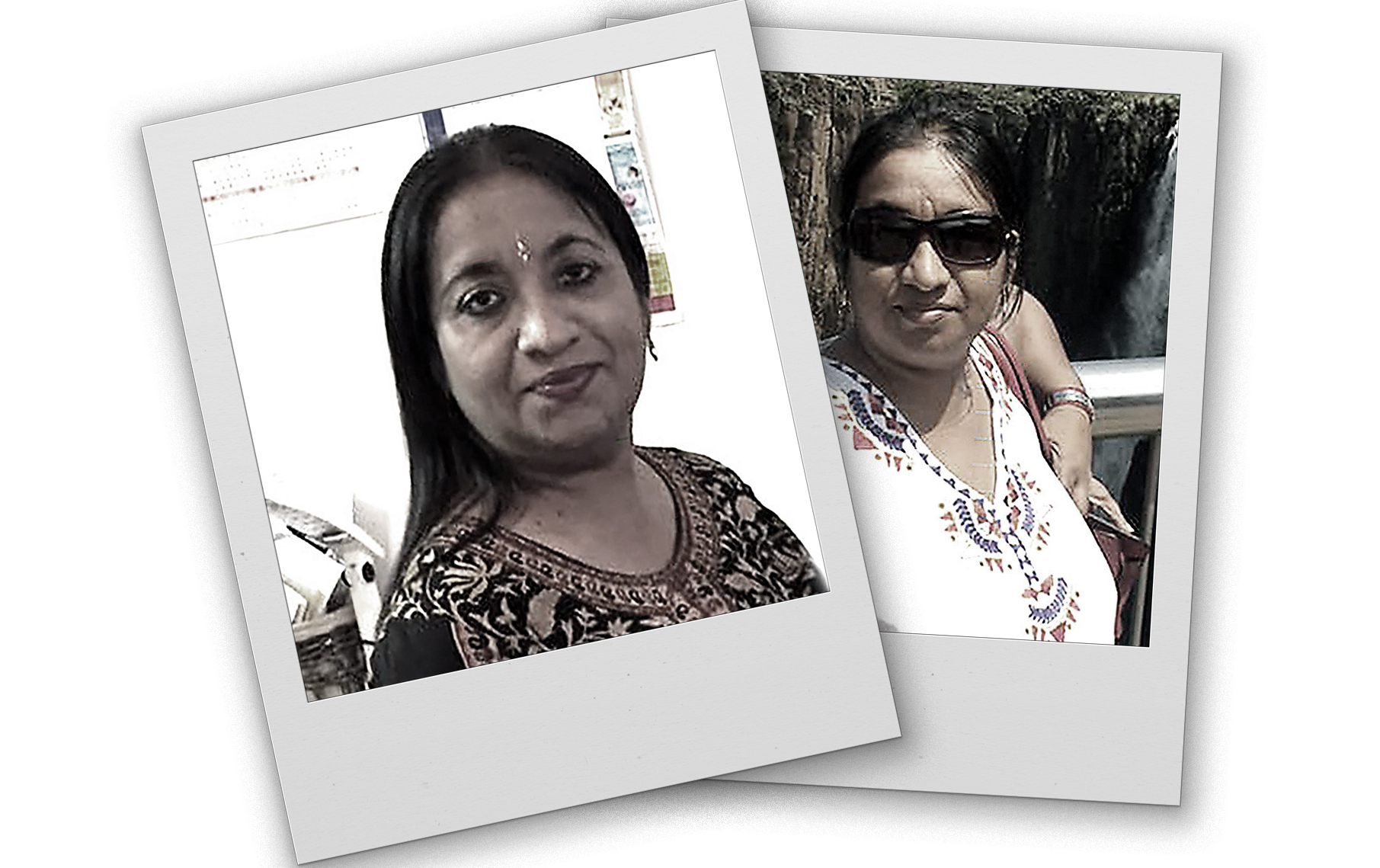WHISTLEBLOWER SOLIDARITY DAY
Activists gather to remember Babita Deokoran and demand a protection action plan

August 23rd will mark one year since whistleblower Babita Deokoran was assassinated outside her home in Johannesburg. At a meeting last week to mark Whistleblower Solidarity Day, veteran activist Elinor Sisulu asked: 'What kind of society are we where we have an everyday word for assassin? An Nkabi. It’s almost like there’s a brochure, prices, and a catalogue of how you do it?'
I’ve learned about dying – a tongue
silenced, a name becoming unspoken.
I’ve learned about decay and about rot,
about withering and wasting away,
fading away, becoming dust and being
blown away, gifts discarded or buried.
From I Live, Athol Williams, poet and whistleblower
On Saturday, 29 July, National Whistleblower Solidarity Day, many of SA’s better known whistleblowers gathered for a seminar at Gibs University in Johannesburg to remember Babita Deokoran and to consolidate their ideas and campaigns to ensure that demands for whistleblower protection and recognition are taken forward.
Among them were Deokoran’s brother and sister-in-law, as well as whistleblowers Athol Williams, Thandeka Gqubule, Martha Ngoye and Cynthia Stimpel.
Joining them were activists and organisations that have been formed to support whistleblowers: the Platform to Protect Whistleblowers in Africa, Whistleblower House, Whistleblowers 4 Positive Change, and the newly formed South African Institute For Responsive and Accountable Governance (Sairag).
Messages of support were received from many organisations: including Copac, Outa, Corruption Watch, Right 2 Know and the Khulumani Support Group.
You could be forgiven for thinking that whistleblowers are well supported. Yet, the now familiar lament of all those present was that while much lip service is given to whistleblowers by President Cyril Ramaphosa, who has called on “all citizens to be whistleblowers”, and the Zondo Commission, there is still a gulf between what is said and what is done.
As a result, whistleblowers continue to be harassed, threatened and assassinated. For example, at the meeting fear was expressed for the safety of Patrica Mashele, whose revelations about police corruption are currently being aired by SABC’s Special Assignment.
As pointed out by Yashica Padia from the Active Citizens Movement, whistleblowers “pay a heavy price while the perpetrators receive the full protection of the law”. This was the unspoken feeling of the meeting: this group of people have sacrificed so much, yet continue to be taken for granted.
Unfinished business
Several whistleblowers addressed the meeting on their continued struggles and campaigns. Bain whistleblower Athol Williams, speaking from his self-exile in the UK, started and finished his speech with two poems he has dedicated to fellow whistleblowers. “I’d rather be naked than clothed in lies” responds a mythical whistleblower to an offer to be “clothed in the finest silk” in one of the poems. And yet the poem’s heroes, like those in the room, say they feel “shrivelled, alone in the wilderness, to the devil’s delight.”
Williams, who testified at the Zondo Commission, talked of his continued campaign against Bain & Company. He called for full disclosure by Bain of what they know “across our entire public service”, pointing out that “after an internal review of 2 million documents and emails, Bain still fails to make public the 140 documents they say they uncovered about state capture and 19 to do with Guptas”.
Williams adds: “We know they met Jacob Zuma, 18 times, but who else was in those meetings? We can never make real progress in overcoming State Capture if we don’t know the names of all who were involved.”

Lord Peter Hain and Bain whistle-blower Athol Williams outside the House of Lords after meeting Cabinet Office Minister Jacob Rees-Mogg. (Photo: Supplied)
Williams questioned how Norman Mbazima, chair of Bain’s oversight board in South Africa, can be permitted to sit on the Board of the South African Reserve Bank. In this context Williams insists that Bain should “make full amends for the harm they did”.
“I’m shocked the SA government has not banned doing business with Bain despite the fact that the Nugent Commission revealed they were part of a ‘premeditated offensive against SARS’ and the Zondo Commission found they ‘colluded to attack SARS’”.
Instead, Williams complains, Bains’ “business is booming. They have swanky new offices in Sandton. Many companies are hiring them. It’s inconceivable that they are welcomed in our society. My campaign will continue.”
In the UK, Williams is working with Lord Peter Hain to “craft letters to raise the issue of Bain in the House of Lords”. As a result of their efforts, he says, “the UK government are now concerned about what Bain is doing in their public service” mentioning that a Cabinet minister had invited Lord Hain and himself to make a presentation to them on the issue.
“Oh what a tangled web we weave when first we practise to deceive”
Dr Aslam Dasoo, convenor of the Progressive Health Forum, pointed out that in the health sector corruption doesn’t exist primarily among healthcare workers, but among those who control the finances of provincial health departments.
“Corruption is so severe that healthcare workers lack the basic necessities they require to practice their craft. When subject to moral injury, they will react. Dr Tim De Maayer is just the latest iteration.”

Paediatrician Dr Tim de Maayer is being persecuted for raising the alarm about the crisis at Rahima Moosa Mother and Child Hospital. (Photo: Supplied)
Dasoo noted a “culture of fear” that has been created by some officials, but said that in the last few years health workers have begun finding their voices.
“This has been turbo-boosted by De Maayer’s revelations and then attempted victimisation, which led to the ‘I Am’ movement among health workers” which, Dasoo claimed, has “forever broken the old power relations … 10,000 of his colleagues are now standing with him” he said, referring to the number of people who have signed the I Am petition.
“Provincial health authorities are extremely nervous this may lead to a tidal wave of revelations. That makes the cowards run for cover.”
Remembering Babita Deokoran
With the anniversary of Babita Deokoran’s death only weeks away her sacrifice and spirit loomed large. Her brother, Rakesh Deokoran, told the meeting “we are full of dread. They say time heals, but each day gets more difficult for us. We miss her tremendously. We speak about her often. We look at her child with sadness and think ‘wow, what a great woman your mum was’.”
Deokoran, his voice faltering, told how the grieving process is slow and arduous. “It’s painful.”
“Could she have done things differently?” he asked. “Yes, she could have kept quiet. But her conscience and upbringing would not allow it.”
He ended, “Babita, we know you are listening and will not rest until all perpetrators feel the wrath of the law. We pray that justice will prevail. We love you and miss you tremendously.”

Babita Deokaran. (Supplied)
Activist Ali Gule, speaking for the Deokoran family, told how they had told him that Babita’s 17 year-old daughter had not received any support from government: “despite the promises made by the Premier”.
Gule announced that on August 24th, when Deokaran’s murder trial resumes, there will be a protest “in large numbers outside the high court” as well as a visit by her family and friends to the scene of her murder on the 23rd. Following Gule several more activists reflected on the meaning of Deokoran’s murder.
In her reflection, Prasa whistleblower Martha Ngoye said that “the ability to loot is an important criteria for deployment”. She pointed out that “Whistleblowers have a target on their back. Babita had a target.”
Listen: PODCAST | The Story: Whistleblower Babita Deokaran’s murder and what she tried to uncover | News24
Ngoye said Gauteng Premier David Makhura had promised justice, but that “before searching for the trigger-puller the easiest people to find are the people who laid concocted charges against Babita … look for officials and the lawyers who persecuted her”.
Veteran human rights activist Elinor Sisulu lamented how:
“Most worrying is that when human rights defenders get killed often it doesn’t even make headline news. Our greatest enemy is apathy. There is so much happening you almost become desensitised.”
Sisulu asked “What kind of society are we that has an everyday word for assassin? An Nkabi. It’s almost like there’s a brochure, prices, a catalogue of how you do it?” Sisulu said “the fact that assassination is so acceptable is really an indictment on us. There’s a whole support system around that criminal.”
Debating a way forward for whistleblowers
The day ended with the presentation of a number of proposals about how to address the lack of political and societal will to protect whistleblowers.
To this end Sairag, led by former SA Human Rights Commission CEO Tseliso Tipanyane, has developed a Protection and Support of Whistleblowers Act, 2022; a draft bill that aims to fill the gaps in current law (the Protected Disclosures Act (PDA)) as well as provide a legal instrument that would facilitate implementation of some of the recommendations on whistleblower protection made by the Zondo Commission.
One participant suggested that this model law should be called the Babita Deokoran Whistleblower Act.
Tipanyane explained that the Defend Our Democracy campaign had committed to distribute and seek consultation on the bill before the end of October. Thereafter, the aim is to introduce it in the National Assembly as a Private Members’ Bill.
Finally, former SABC Economics editor and member of the SABC Eight, Thandeka Gqubule-Mbeki, announced a raft of plans including a petition to change the PDA as a matter of urgency and “raise awareness about whistleblowing”; an open letter to the President from whistleblowers; a letter to the UN Special Rapporteur on the promotion and protection of the right to freedom of opinion and expression; and a request that Business Unity South Africa make a substantial donation to an emergency fund to be located at Whistleblower House, to help with psychosocial support and other needs of whistleblowers who have paid a heavy price for their refusal to “abandon truth” and serve the architects and soldiers of State Capture. DM/MC


















 Become an Insider
Become an Insider
Comments - Please login in order to comment.